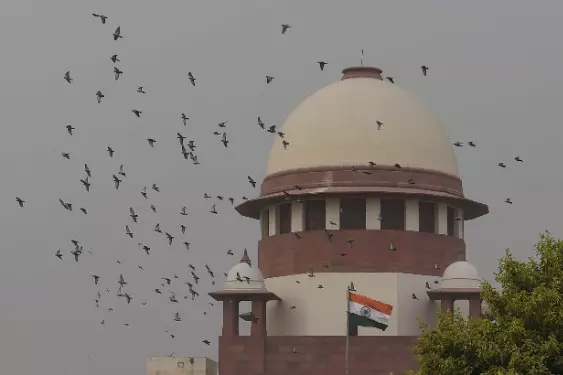Power to proceed against someone appearing guilty must be exercised cautiously: SC

New Delhi: The Supreme Court on Wednesday said the power to proceed against someone appearing guilty of an offence ought to be exercised with "utmost caution" and not as a tool to harass.
A bench of Justices Sanjay Karol and Joymalya Bagchi was hearing a case concerning Section 319 of the erstwhile CrPC.
Section 319 deals with the power to proceed against persons appearing to be guilty of an offence.
The bench said the provision empowered the court to proceed against any person, even if not cited as an accused, based on evidence collected during the inquiry or trial revealing the complicity of such person to be arrayed as an accused.
"The power to be exercised, needless to add, is to be with utmost caution and not in a casual, callous or cavalier manner – for the same is only to advance the cause of justice and not be a tool to harass the individual or result into an abuse of the process of law," it said.
The apex court's verdict came on an appeal against an order of the Allahabad High Court passed July last years.
The high court quashed the summons issued by a trial court in Kaushambi against a person under Section 319 of the CrPC in a 2017 murder case.
The top court said the power under Section 319 had to be invoked only upon the satisfaction of cogent material brought on record, necessitating such impleadment.
It noted certain statutory requisites for summoning any person not being the accused, including the person committing the offence and their complicity being revealed from the evidence collected during inquiry or trial.
The bench also enumerated the principles which the trial court ought to follow while exercising power under section 319.
"This provision is a facet of that area of law which gives protection to victims and society at large, ensuring that the perpetrators of crime should not escape the force of law," it said.
The bench said it was the court's duty not to let the guilty get away unpunished.
The trial court, the top court said, was not powerless to summon a person not named in the FIR or chargesheet and they could be impleaded if the evidence inculpated him.
Dealing with the case at hand, the bench said the evidence from three alleged eye-witnesses prima facie suggested the complicity of the person who was summoned by the trial court under section 319 of CrPC.
While allowing the appeal filed by the complainant of the case, the bench set aside the high court verdict and restored the trial court's summoning order.
The bench directed the parties to appear before the trial court on August 28 and ordered the trial's completion within 18 months.



